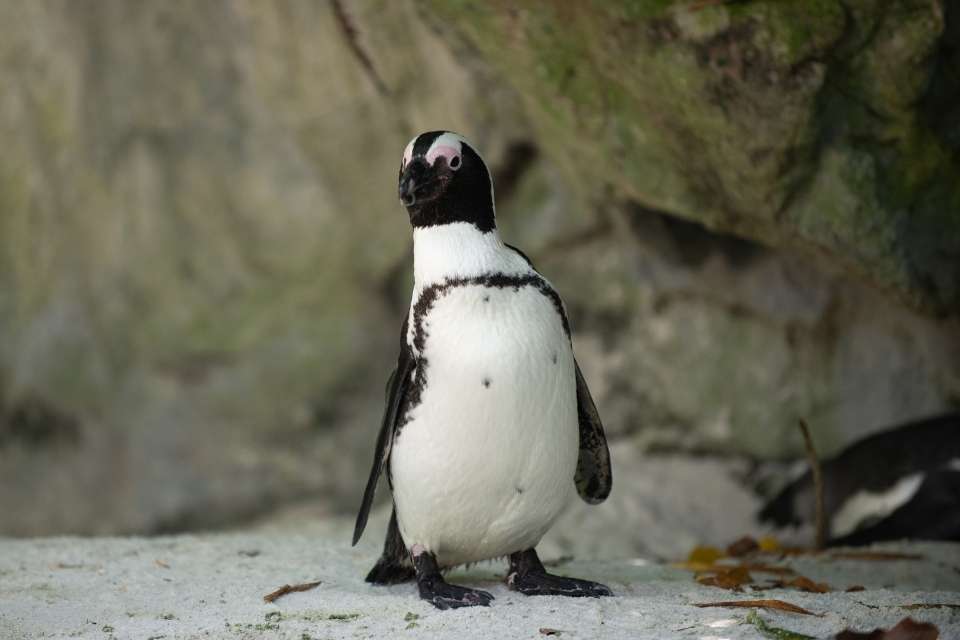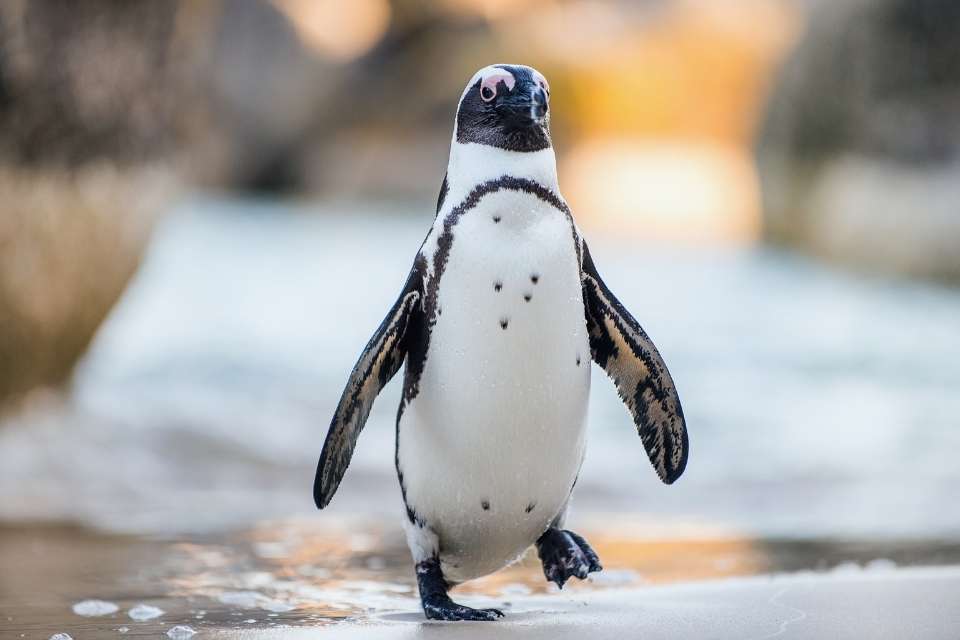When we think of penguins, we often picture them waddling and sliding across icy landscapes, living in harmony with their fellow colony members. But can these fascinating creatures experience feelings of depression?
The emotional well-being and mental health of penguins have become subjects of interest for researchers in recent years.
While penguin depression is not fully understood, there have been observations suggesting a possible depression-like state in some individuals. Observations have revealed instances where penguins wander away from their colonies, heading towards certain doom. This behavior has led researchers to question whether penguins can indeed experience depression.
Although no conclusive evidence has been found, it paints a compelling picture that highlights the need for further research into the emotional lives of these incredible creatures.
Key Takeaways:
- Penguins have exhibited behavior indicating a possible depression-like state, but scientific explanations are lacking.
- Observations of penguins wandering away from their colonies suggest a connection to their mental well-being.
- Further research is essential to understand the emotional well-being and mental health of penguins.
- Penguins’ unique behavior, such as swimming, diving, and monogamous relationships, adds complexity to their psychological landscape.
- Studying penguin mental health could lead to better conservation strategies and ensure their well-being in their natural habitats.
The Behavior of Penguins
Penguins are fascinating creatures known for their unique behavior and remarkable abilities. They are highly skilled swimmers and divers, effortlessly navigating through the waters with impressive agility.
Penguins can reach remarkable speeds underwater and dive to great depths in search of food.
Despite not having teeth, penguins are adept hunters, capturing fish and other prey with precision. To aid in digestion, penguins have a peculiar habit of swallowing rocks, which act as a form of natural ballast and help them grind their food.
Interestingly, penguins exhibit behaviors that resemble our own human experiences. They have an upright posture and are known to feel tickling sensations and react to nerve stimulation, similar to how we do. This suggests that penguins have a certain level of sensitivity and awareness.
Furthermore, observations have revealed that some penguins engage in homosexual behavior, particularly in colonies where there is a shortage of females. These instances highlight the complexity of penguin social dynamics and the variety of behaviors that can be observed within their populations.
Penguins are also monogamous creatures, forming lifelong partnerships and displaying a strong sense of commitment to their mates. They take turns incubating their eggs, sharing the responsibility and ensuring the survival of their offspring.
Key Points:
- Penguins are excellent swimmers and divers, reaching impressive speeds underwater and diving to great depths.
- Despite lacking teeth, penguins are skilled hunters, catching prey and using rocks to aid digestion.
- Penguins have an upright posture, feel tickling sensations, and react to nerve stimulation similar to humans.
- Some penguins exhibit homosexual behavior, especially in colonies with a shortage of females.
- Penguins are monogamous, forming lifelong partnerships and sharing the duties of incubating eggs.
Understanding the behavior of penguins is crucial in comprehending their psychology, emotions, and overall well-being. By studying their behaviors, we can gain valuable insights into the fascinating lives of these remarkable creatures.
Factors Affecting Penguin Mental State
While the exact factors affecting the mental state of penguins are not fully understood, it is believed that several key factors may play a role in shaping their mental well-being.
Environmental Conditions
The harsh conditions of the penguins’ natural habitat can have a significant impact on their mental state. Extreme temperatures, strong winds, and limited food sources can lead to stress and physical challenges, ultimately affecting their emotional well-being.
Food Availability
The availability of food is crucial for the survival of penguins and can also influence their mental state. When there is a scarcity of food, penguins may experience increased stress and anxiety, which in turn can affect their overall mental health.
Social Dynamics within Colonies
Penguins are highly social creatures and live in tightly knit colonies. The dynamics within these colonies, including social interactions and hierarchies, can impact their mental well-being.
Strong social bonds and harmonious relationships within the colony are essential for a penguin’s emotional stability, while conflicts or disruptions in social structure can lead to stress and other negative effects on their mental state.
“The well-being of penguins is intrinsically linked to their environment and social dynamics. Factors such as food availability, environmental conditions, and social interactions within colonies are key to understanding and studying penguin mental health.” – Dr. Rebecca Davis, Marine Biologist
While these factors provide some insights into the possible influences on penguin mental state, further research is needed to gain a comprehensive understanding of the complex interplay between these factors and their effects on penguin mental health.
By studying penguin mental health, we can contribute to their conservation efforts and ensure the well-being of these remarkable creatures.
Signs of Depression in Penguins
Identifying signs of depression in penguins is a challenging task since they cannot communicate their emotions verbally. However, researchers look for changes in behavior that may indicate a depressive-like state.
- Decreased activity levels: Penguins affected by depression may exhibit a notable decrease in their usual levels of activity. They may appear lethargic or disinterested in their usual activities.
- Reduced appetite: Depressed penguins may experience a loss of appetite, leading to weight loss and a decline in physical health. This change in eating behavior can be a significant indicator of their mental state.
- Isolation from the colony: Penguins that are depressed may withdraw from their social groups and spend more time alone. They may distance themselves from the colony and seek solitude, avoiding interactions with other penguins.
- Lack of interest in mating or normal social interactions: Depressed penguins may show a disinterest in mating and normal social interactions. They may not engage in courtship behaviors or exhibit a lack of enthusiasm in socializing with other penguins.
These signs, when observed in combination with instances of suicidal behavior among penguins, suggest that these amazing creatures may indeed experience a depressive-like state.
Further research is essential to deepen our understanding of penguin mental health and develop appropriate strategies for their well-being.
Studying Penguin Mental Health
Despite the limited research on penguin mental health, we are gradually starting to study and understand the emotional well-being of these fascinating creatures.
Through observation, behavior analysis, and physiological measurements, researchers gather valuable data on penguin mental health. By studying the factors that affect penguin mental state and identifying signs of depression, we hope to gain meaningful insights into the emotional lives of these charismatic birds.
The evidence of possible depression-like behavior in penguins highlights the need to delve deeper into their mental health. We strive to develop strategies that promote their conservation and well-being in their natural habitats.
Scientific Methods Used in Studying Penguin Mental Health
Scientists employ a range of scientific methods to study penguin mental health. Some of the key approaches include:
- Observation: Scientists carefully observe penguins in their natural habitat to identify patterns and behaviors related to mental health. These observations help researchers gather information on the overall well-being of penguins and detect any unusual or concerning behavior.
- Behavior Analysis: Researchers analyze the behavior of penguins, paying close attention to changes in activity levels, social interactions, and feeding patterns. These observations provide valuable insights into the mental state of penguins.
- Physiological Measurements: Scientists also use physiological measurements to gather data on penguin mental health. These measurements may include hormone levels, body temperature, heart rate, and other indicators that can provide valuable information about the emotional well-being of penguins.
By combining these research methods and analyzing the data collected, scientists hope to gain a better understanding of penguin mental health and contribute to their overall well-being.
The Importance of Studying Penguin Mental Health
Studying penguin mental health is crucial for several reasons:
- Maintaining Conservation Efforts: Understanding the emotional well-being of penguins enables us to develop effective conservation strategies to protect their population and their habitats.
- Improving Rehabilitation Programs: For penguins that have been affected by environmental changes or human activities, studying their mental health helps us design appropriate rehabilitation programs to support their recovery.
- Enhancing Captive Care: For penguins in captivity, knowledge of their mental health allows us to create suitable environments and enrichments that promote their psychological well-being.
- Contributing to Overall Ecological Understanding: By studying penguin mental health, we gain insight into the overall health of marine ecosystems and the impact of environmental changes on animal populations.
“Studying the mental health of penguins not only benefits these captivating creatures but also offers insights into the delicate balance of nature and our role in its preservation.”
Through continued research and a deeper understanding of penguin mental health, we can strive to protect these unique and beloved animals for generations to come.
Conclusion
Penguins are fascinating creatures that exhibit unique behaviors. Although there have been observations suggesting a possible depression-like state in some individuals, the exact causes and mechanisms behind penguin depression are still not fully understood.
However, researchers are actively studying the mental health of penguins to gain a deeper understanding of their emotional well-being.
By comprehending the emotional well-being of penguins, we can take steps to ensure their conservation and promote their overall well-being in their natural habitats.
Understanding the factors that can affect penguin mental state, such as environmental conditions, food availability, and social dynamics within colonies, is crucial in developing strategies to support their emotional needs.
This knowledge can guide conservation efforts and help create a more sustainable and nurturing environment for penguins.
Continued research into penguin mental health is essential to unravel the complexities of their emotional lives.
By studying their behavior, analyzing physiological measurements, and identifying signs of depression, scientists can gain valuable insights into the emotional well-being of penguins and contribute to their long-term preservation.
Together, we can work towards protecting these captivating creatures and ensure their emotional well-being for generations to come.
Frequently Asked Questions
Can penguins get depressed?
While penguin depression is not fully understood, there have been observations suggesting a possible depression-like state in some individuals.
What is the behavior of penguins?
Penguins have unique behaviors such as being excellent swimmers and hunters, engaging in homosexual behavior in colonies with a shortage of females, and exhibiting monogamous and caring characteristics.
What factors affect penguin mental state?
Environmental conditions, food availability, and social dynamics within colonies are believed to play a role in the mental well-being of penguins.
What are the signs of depression in penguins?
Signs of depression in penguins may include decreased activity levels, reduced appetite, isolation from the colony, and a lack of interest in mating or normal social interactions.
How is penguin mental health studied?
Researchers study penguin mental health through observation, behavior analysis, and physiological measurements to gain insights into the emotional well-being of these fascinating creatures.
What is the conclusion about penguin depression?
Further research is needed to fully understand penguin depression and the emotional well-being of penguins in order to develop strategies for their conservation and well-being.


